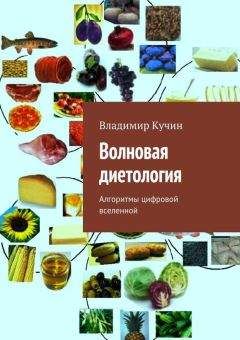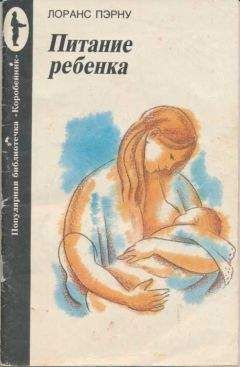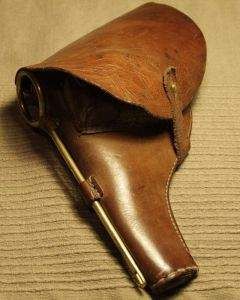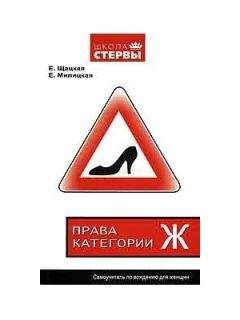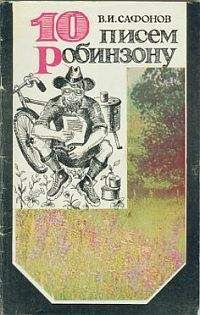Неизвестен Автор - Словарь американских идиом (8000 единиц)
Скачивание начинается... Если скачивание не началось автоматически, пожалуйста нажмите на эту ссылку.
Жалоба
Напишите нам, и мы в срочном порядке примем меры.
Описание книги "Словарь американских идиом (8000 единиц)"
Описание и краткое содержание "Словарь американских идиом (8000 единиц)" читать бесплатно онлайн.
[coffee break] <n.> A short recess or time out from work in which to rest and drink coffee. * /The girls in the office take a coffee break in the middle of the morning and the afternoon./
[coffee hour] <n.> A time for coffee or other refreshments after a meeting; a time to meet people and have refreshments. * /After the business meeting we had a coffee hour./ * /The Joneses had a coffee hour so their visitor could meet their neighbors./
[coffee table] <n.> A low table used in a living room. * /There were several magazines on the coffee table./
[coffin nail] <n.>, <slang> A cigarette. * /"I stopped smoking," Algernon said. "In fact, I haven't had a coffin nail in well over a year."/
[cog] See: SLIP A COG or SLIP A GEAR.
[coin money] or [mint money] <v. phr.>, <informal> To make a lot of money quickly; profit heavily; gain big profit. * /Fred coined money with many cigarette vending machines and juke boxes./
[cold] See: BLOOD RUNS COLD, BLOW HOT AND COLD, CATCH COLD or TAKE COLD, IN COLD BLOOD, OUT COLD, OUT IN THE COLD, PASS OUT(2), STONE-COLD, STOP COLD, THROW COLD WATER ON.
[cold cash] or [hard cash] <n.> Money that is paid at the time of purchase; real money; silver and bills. * /Mr. Jones bought a new car and paid cold cash for it./ * * /Some stores sell things only for cold cash./ Compare: CASH ON THE BARRELHEAD.
[cold comfort] <n.> Something that makes a person in trouble feel very little better or even worse. * /When Tim lost the race, it was cold comfort to him to hear that he could try again in two weeks./ * /Mary spent her vacation sick in bed and Jane's letter about her trip was cold comfort./
[cold feet] <n. phr.>, <informal> A loss of courage or nerve; a failure or loss of confidence in yourself. * /Ralph was going to ask Mary to dance with him but he got cold feet and didn't./
[cold fish] <n.>, <informal> A queer person; a person who is unfriendly or does not mix with others. * /No one knows the new doctor, he is a cold fish./ * /Nobody invites Eric to parties because he is a cold fish./
[cold-shoulder] <v.>, <informal> To act towards a person; with dislike or scorn; be unfriendly to. * /Fred cold-shouldered his old friend when they passed on the street./ * /It is impolite and unkind to cold-shoulder people./ Compare: BRUSH OFF(2), HIGH-HAT, LOOK DOWN ONE'S NOSE AT.
[cold shoulder] <n.>, <informal> Unfriendly treatment of a person, a showing of dislike for a person or of looking down on a person. Used in the cliches "give the cold shoulder" or "turn a cold shoulder to" or "get the cold shoulder". * /When Bob asked Mary for a date she gave him the cold shoulder./ * /The membership committee turned a cold shoulder to Jim's request to join the club./
[cold snap] <n.> A short time of quick change from warm weather to cold. * /The cold snap killed everything in the garden./
[cold turkey] <adv.>, <slang>, <informal> 1. Abruptly and without medical aid to withdraw from the use of an addictive drug or from a serious drinking problem. * /Joe is a very brave guy; he kicked the habit cold turkey./ 2. <n.> An instance of withdrawal from drugs, alcohol, or cigarette smoking. * /Joe did a cold turkey./
[cold war] <n.> A struggle that is carried on by other means and not by actual fighting; a war without shooting or bombing. * /After World War II, a cold war began between Russia and the United States./
[collar] See: HOT UNDER THE COLLAR, ROMAN COLLAR, SAILOR COLLAR.
[collective farm] <n.> A large government-run farm made by combining many small farms. * /The Russian farmers used to live on collective farms./
[collector's item] <n.> Something rare or valuable enough to collect or save. * /Jimmy's mother found an old wooden doll in the attic that turned out to be a collector's item./
[College Boards] <n.> A set of examinations given to test a student's readiness and ability for college. * /John got a high score on his College Boards./ * /College Boards test both what a student has learned and his ability to learn./
[color] See: CHANGE COLOR, GIVE COLOR TO or LEND COLOR TO, HAUL DOWN ONE'S COLORS, HORSE OF A DIFFERENT COLOR, NAIL ONE'S COLORS TO THE MAST, OFF-COLOR or OFF-COLORED, SAIL UNDER FALSE COLORS, SEE THE COLOR OF ONE'S MONEY, SHOW ONE'S COLORS, WITH FLYING COLORS.
[color guard] <n.> A military guard of honor for the flag of a country; also: a guard of honor to carry and protect a flag or banner (as of a club). * /There were four Marines in the color guard in the parade./ * /Bob was picked to be a color guard and to carry the banner of the drum corps at the football game./
[color scheme] <n.> A plan for colors used together as decoration. * /The color scheme for the dance was blue and silver./ * /Mary decided on a pink and white color scheme for her room./
[comb] See: FINE-TOOTH COMB.
[come] See: CHICKENS COME HOME TO ROOST, CROSS A BRIDGE BEFORE ONE COMES TO IT, EASY COME - EASY GO, FIRST COME - FIRST SERVED, GET WHAT'S COMING TO ONE, HAVE IT COMING, HOW COME also HOW'S COME, IF WORST COMES TO WORST, JOHNNY-COME-LATELY, KNOW ENOUGH TO COME IN OUT OF THE RAIN, KNOW IF ONE IS COMING OR GOING, LOOK AS IF ONE HAS COME OUT OF A BANDBOX, SHIP COME IN.
[come about] <v.> To take place; happen, occur. * /Sometimes it is hard to tell how a quarrel comes about./ * /When John woke up he was in the hospital, but he didn't know how that had come about./
[come a cropper] 1. To fall off your horse. * /John's horse stumbled, and John came a cropper./ 2. To fail. * /Mr. Brown did not have enough money to put into his business and it soon came a cropper./ Compare: RIDING FOR A FALL.
[come across] <v.> 1. or [run across] To find or meet by chance. * /He came across a dollar bill in the suit he was sending to the cleaner./ * /The other day I ran across a book that you might like./ * /I came across George at a party last week; it was the first time I had seen him in months./ Compare: COME ON(3), RUN INTO(3b). 2. To give or do what is asked. * /The robber told the woman to come across with her purse./ * /For hours the police questioned the man suspected of kidnapping the child, and finally he came across with the story./
[come again] <v.>, <informal> Please repeat; please say that again. - Usually used as a command. * /"Harry has just come into a fortune," my wife said. "Come again? " I asked her, not believing it./ * /"Come again," said the hard-of-hearing man./
[come alive] or [come to life] <v.> 1. <informal> To become alert or attentive; wake up and look alive; become active. * /When Mr. Simmons mentioned money, the boys came alive./ * /Bob pushed the starter button, and the engine came alive with a roar./ 2. To look real; take on a bright, natural look. * /Under skillful lighting, the scene came alive./ * /The President came alive in the picture as the artist worked./
[come along] <v.> To make progress; improve; succeed. * /He was coming along well after the operation./ * /Rose is coming right along on the piano./
[come a long way] <v. phr.> To show much improvement; make great progress. * /The school has come a long way since its beginnings./ * /Little Jane has come a long way since she broke her leg./
[come apart at the seams] <v. phr.>, <slang>, <informal> To become upset to the point where one loses self-control and composure as if having suffered a sudden nervous breakdown. * /After his divorce Joe seemed to be coming apart at the seams./
[come around] See: COME ROUND.
[come at] <v.> 1. To approach; come to or against; advance toward. * /The young boxer came at the champion cautiously./ 2. To understand (a word or idea) or master (a skill); succeed with. * /The sense of an unfamiliar word is hard to come at./
[come back] <v.>, <informal> 1. To reply; answer. * /The lawyer came back sharply in defense of his client./ * /No matter how the audience heckled him, the comedian always had an answer to come back with./ 2. To get a former place or position back, reach again a place which you have lost. * /After a year off to have her baby, the singer came back to even greater fame./ * /It is hard for a retired prize fighter to come hack and beat a younger man./
[comeback] <n.>, <v. phr.>, <slang>, <citizen's band radio jargon> A return call. * /Thanks for your comeback./
[come back to earth] or [come down to earth] <v. phr.> To return to the real world; stop imagining or dreaming; think and behave as usual. * /After Jane met the movie star it was hard for her to come back to earth./ * /Bill was sitting and daydreaming so his mother told him to come down to earth and to do his homework./ Compare: COME TO ONE'S SENSES, DOWN-TO-EARTH. Contrast: IN THE CLOUDS.
[come between] <v.> To part; divide; separate. * /John's mother-in-law came to live in his home, and as time passed she came between him and his wife./ * /Bill's hot rod came between him and his studies, and his grades went down./
[come by] <v.> To get; obtain; acquire. * /A good job like that is hard to come by./ * /Money easily come by is often easily spent./ * /How did she come by that money?/
[come by honestly] <v. phr.>, <informal> To inherit (a characteristic) from your parents. * /Joe comes by his hot temper honestly; his father is the same way./
[come clean] <v. phr.>, <slang> To tell all; tell the whole story; confess. * /The boy suspected of stealing the watch came clean after long questioning./
[comedown] <n.> Disappointment; embarrassment; failure. * /It was quite a comedown for Al when the girl he took for granted refused his marriage proposal./
[come down] <v.> 1. To reduce itself; amount to no more than. Followed by "to". * /The quarrel finally came down to a question of which boy would do the dishes./ Syn.: BOIL DOWN(3). 2. To be handed down or passed along, descend from parent to child; pass from older generation to younger ones. * /Mary's necklace had come down to her from her grandmother./
[come down hard on] <v.>, <informal> 1. To scold or punish strongly. * /The principal came down hard on the boys for breaking the window./ 2. To oppose strongly. * /The minister in his sermon came down hard on drinking./
[come down in the world] <v. phr.> To lose a place of respect or honor, become lower (as in rank or fortune). * /The stranger plainly had come down a long way in the world./ Compare: DOWN ON ONE'S LUCK.
[come down off one's high horse] <v. phr.> To become less arrogant; to assume a more modest disposition. * /The boastful candidate for Congress quickly came down off his high horse when he was soundly beaten by his opponent./
[come down on like a ton of bricks] <v. phr.>, <slang> To direct one's full anger at somebody. * /When the janitor was late for work, the manager came down on him like a ton of bricks./
[come down to earth] See: COME BACK TO EARTH.
[come down with] <v.>, <informal> To become sick with; catch. * /We all came down with the mumps./ * /After being out in the rain, George came down with a cold./
[come from far and wide] <v. phr.> To originate or hail from many different places. * /The students at this university come from far and wide and speak many languages./
[come full circle] <v. phr.>, <informal> 1. To become totally opposed to one's own earlier conviction on a given subject. * /Today's conservative businessperson has come full circle from former radical student days./ 2. To change and develop, only to end up where one started. * /From modern permissiveness, ideas about child raising have come full circle to the views of our grandparents./
[come hell or high water] <adv. phr.>, <informal> No matter what happens; whatever may come. * /Grandfather said he would go to the fair, come hell or high water./ Compare: COME WHAT MAY, THROUGH THE MILL.
[come home to roost] See: CHICKENS COME HOME TO ROOST.
[come in] <v.> 1. To finish in a sports contest or other competition. * /He came in second in the hundred-yard dash./ 2. To become the fashion; begin to be used. * /Swimming trunks for men came in after World War I; before that men used full swim suits./
[come in for] <v.> To receive. * /He came in for a small fortune when his uncle died./ * /His conduct came in for much criticism./
[come in handy] <v. phr.>, <informal> To prove useful. * /Robinson Crusoe found tools in the ship which came in handy when he built a house./ * /The French he learned in high school came in handy when he was in the army in France./
[come into] <v.> To receive, especially after another's death; get possession of. * /He came into a lot of money when his father died./ * /He came into possession of the farm after his uncle died./
[come into one's own] <v. phr.> To receive the wealth or respect that you should have. * /John's grandfather died and left him a million dollars; when John is 21, he will come into his own./ * /With the success of the Model T Ford, the automobile industry came into its own./
[came natural] See: COME EASY.
[come of] <v.> 1. To result from. * /After all the energy we spent on that advertising campaign, absolutely nothing came of it./ 2. To become of; happen to. * /"Whatever became of your son, Peter?"/
[come of age] See: OF AGE.
[come off] <v.> 1. To take place; happen. * /The picnic came off at last, after being twice postponed./ 2. <informal> To do well; succeed. * /The attempt to bring the quarreling couple together again came off, to people's astonishment./
[come off it] also [get off it] <v. phr.>, <slang> Stop pretending; bragging, or kidding; stop being silly. - Used as a command. * /"So I said to the duchess..." Jimmy began. "Oh, come off it," the other boys sneered./ * /Fritz said he had a car of his own. "Oh, come off it," said John. "You can't even drive."/
[come off] or [through with flying colors] <v. phr.> To succeed; triumph. * /John came off with flying colors in his final exams at college./
[come off second best] <v. phr.> To not win first but only second, third, etc. place. * /Our home team came off second best against the visitors./ * /Sue complains that she always comes off second best when she has a disagreement with her husband./
[come on] <v.> 1. To begin; appear. * /Rain came on toward morning./ * /He felt a cold coming on./ 2. To grow or do well; thrive. * /The wheat was coming on./ * /His business came on splendidly./ 3. or [come upon]. To meet accidentally; encounter; find. * /He came on an old friend that day when he visited his club./ * /He came upon an interesting idea in reading about the French Revolution./ Syn.: COME ACROSS, HAPPEN ON. 4. <informal> Let's get started; let's get going; don't delay; don't wait. - Used as a command. * /"Come on, or we'll he late," said Joe, but Lou still waited./ 5. <informal> Please do it! Used in begging someone to do something. * /Sing us just one song, Jane, come on!/ * /Come on, Laura, you can tell me. I won't tell anybody./
Подписывайтесь на наши страницы в социальных сетях.
Будьте в курсе последних книжных новинок, комментируйте, обсуждайте. Мы ждём Вас!
Похожие книги на "Словарь американских идиом (8000 единиц)"
Книги похожие на "Словарь американских идиом (8000 единиц)" читать онлайн или скачать бесплатно полные версии.
Мы рекомендуем Вам зарегистрироваться либо войти на сайт под своим именем.
Отзывы о "Неизвестен Автор - Словарь американских идиом (8000 единиц)"
Отзывы читателей о книге "Словарь американских идиом (8000 единиц)", комментарии и мнения людей о произведении.







